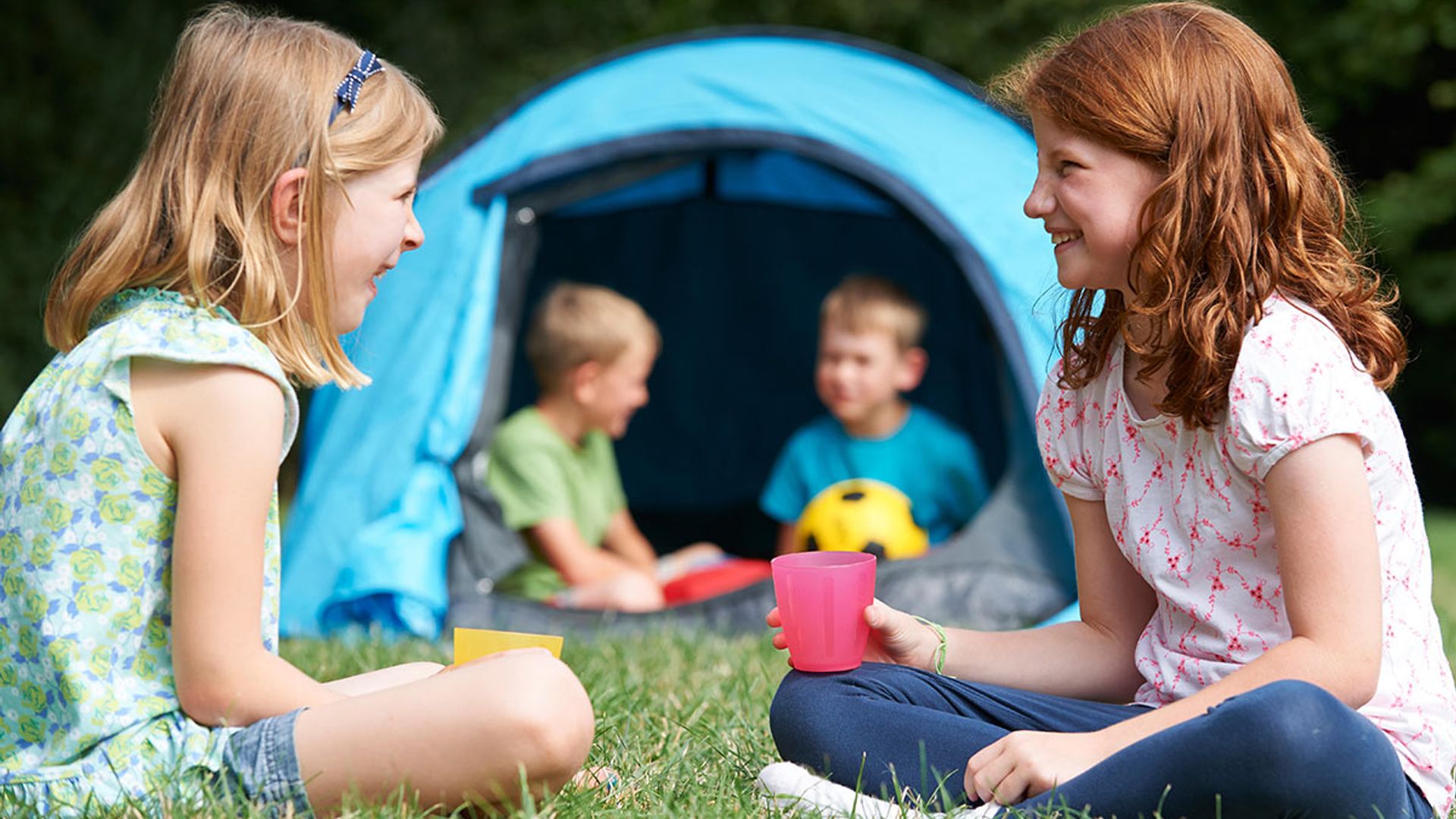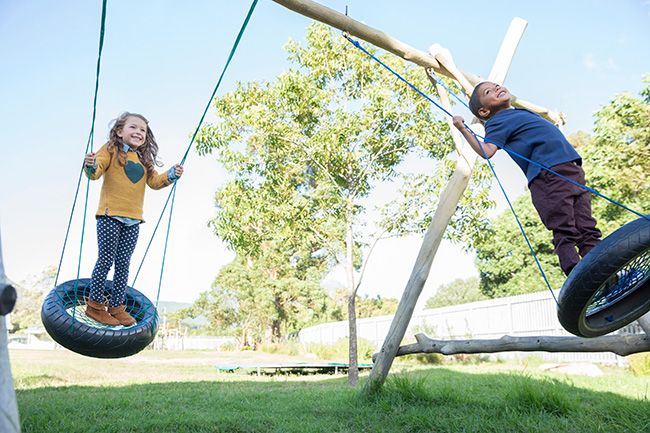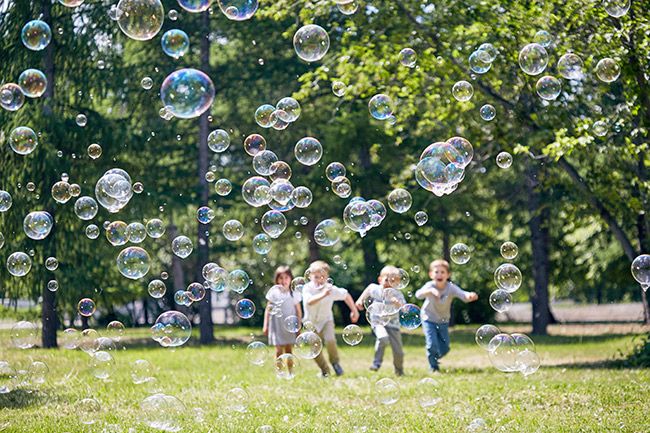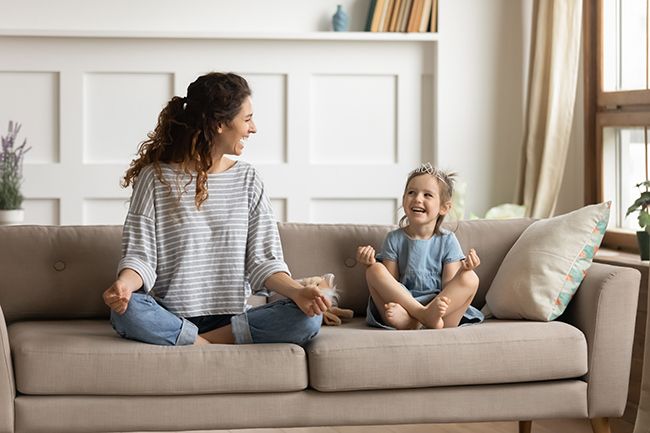Now schools have reopened and lockdown is beginning to lift, our lives are returning to some kind of normality. However, it's been a tough year for everyone, particularly children who have largely missed out on their usual classroom education and socialising with friends.
Parents across the country are understandably concerned about the effect this past year has had on their children's mental health and social skills – how do they suddenly go back to normal?
There are bound to be worries and anxieties as children adjust from the quiet of home to their normal school-playdate-activity schedule once more. Fortunately, the damage is not irreparable and with some support and guidance, our children's social skills can flourish again.
Here, Richard Evans, founder of private tutoring service The Profs, outlines how to reactivate your child’s social skills post lockdown…
MORE: 11 easy Easter crafts for kids: Fun ways to keep your little bunnies entertained in lockdown
1) Encourage them to interact with the environment
Richard says: "Playing outside can be a great sensory experience for your child and gives them a chance to have socially distanced adventures with school friends. They can play games, test their physical limits and express themselves without worrying about space limits or dirt transferring indoors.
"Studies show that children who engage in lots of physical activities at school tend to be livelier and more energetic at home, whilst children that lack active physical activity engage in more sedentary behaviours such as watching TV and excessive computer use.
"Arrange a socially distanced outdoor playdate so your child can get the physical exercise, motor skills development and chance to interact with other people during lockdown."
2) Let them lead in activities
"Child-led learning can sound confusing and chaotic to some parents. You may think that no true learning will occur unless you are in charge, but the truth is children are highly curious and have an infinite number of unique ideas.
"Letting your child lead in activities will create an unpressured environment where your child feels confident enough to express and experiment with their ideas. Whether this is building blocks, playing in a sandpit or painting, observe how the child approaches the activity and adapts the task to fit with their direction. This should create a fun environment and foster a love of learning within your child."
MORE: 7 best Playhouses for kids 2021: Fun wooden Wendy Houses & luxury garden playhouses
3) Cook with them
"Cooking with your child is a fantastic way to improve their language and communication skills. As you cook, you are labelling ingredients that will increase your child’s vocabulary.
"As well as this, they have to follow cooking instructions which enhances receptive skills. Whether it’s predicting what will happen next or allowing them to observe how the meal is coming together, there is an opportunity for advanced learning and communication just by cooking together."
4) After school clubs
"Breakfast and after school clubs have been allowed to resume where necessary. Not only are these after-school clubs fun, but they help keep your child engaged and active in a safe, supervised environment. They provide opportunities for your child to meet new friends and share their talents in a different school setting.
"Afterschool programs provide a supportive environment for children to develop their social, emotional, cognitive and physical behaviours."
MORE: These UK family attractions are open for the Easter holidays
5) Practice mindfulness
"If you are dealing with a shy or socially anxious child, mindfulness can benefit them to observe their own thoughts and not get carried away by them. Even if your child is not anxious and is confident, mindfulness can nurture your child’s social awareness and allows them to reflect on the feelings of people they interact with.
"Just 10 minutes a day of observing the space around them and deep breathing can help your child recentre, calm down and find positive relationships with themselves and others."
6) Ask them how their day was
"Sometimes, the best way to encourage conversation is to start it with an open question. Go beyond asking 'How are you?', as this can be interpreted as a casual greeting that isn’t meant to be answered seriously with anything other than 'good'.
"Opt for phrases such as 'How have you been?', 'What’s new?', 'What have you been up to?' and 'How’s your day going?' to connect in a way that is a little more intentional and holistic.
"Really listen to what your child is saying and show an interest in their lives. These regular chats will help develop meaningful relationships in your child’s life and allow them to be more expressive."
7) Read with them
"Reading has been known to improve a child’s academic capability, however, what most people tend to overlook are its other benefits.
"Reading equips children with new vocabulary and language skills that they need for coherent conversation. Encouraging them to read out loud gives them the confidence to speak up and voice their opinions.
"As well as this, reading gives them a fictitious escape from reality. Giving them a safe space where they can explore their imagination helps your child recharge, so they are ready to learn and socialise again."











